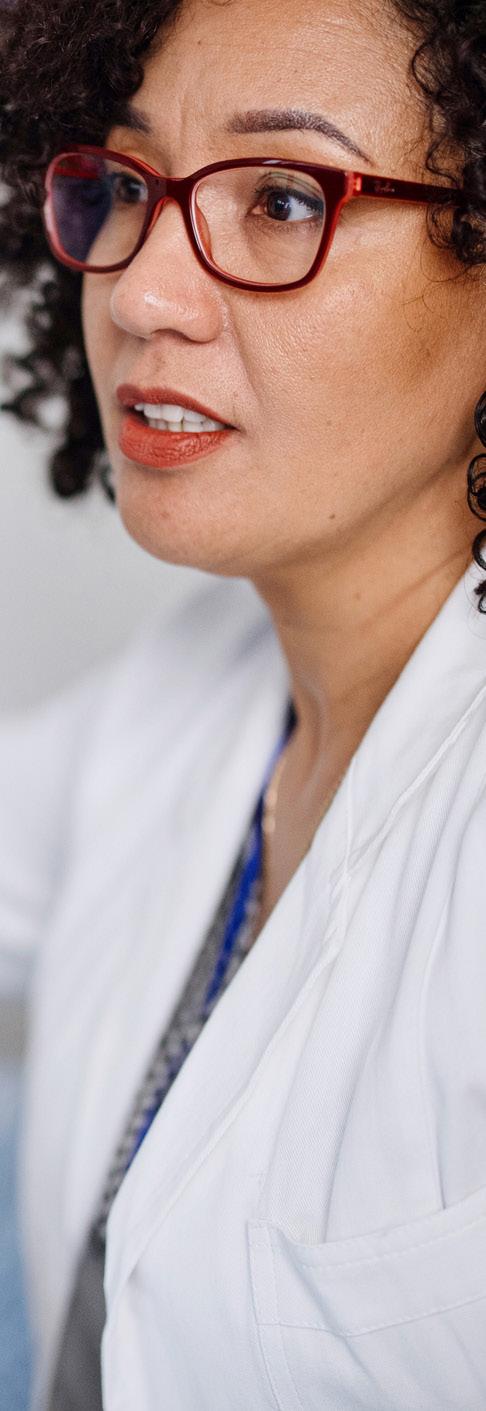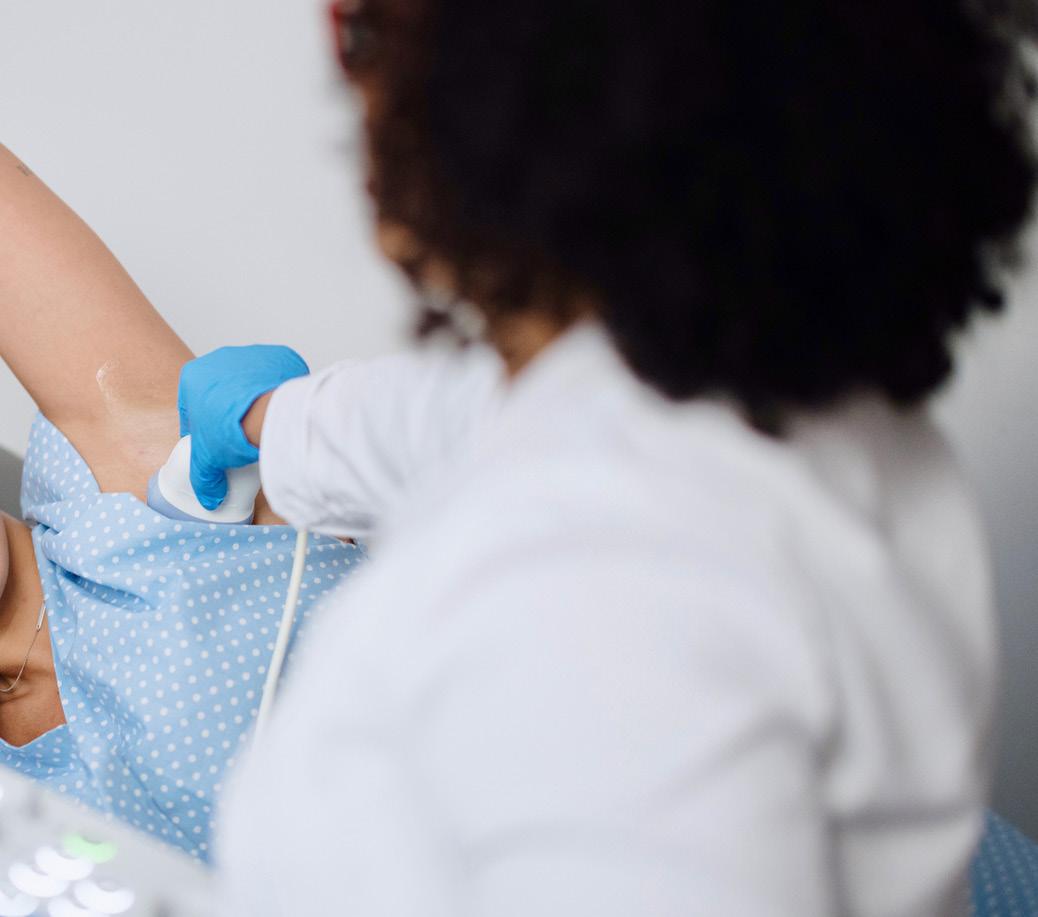
3 minute read
Digistain Presentation
WATCH NOW
Matthew Bardell
Advertisement

TITLE: MANAGING DIRECTOR
COMPANY: NVENTIC
LOCATION: MUNICH
Bardell helps companies improve their supply chain resilience and performance through advanced analytics and a range of advisory services. nVentic combines the analytical power of advanced information technology with the human element necessary to deliver sustainable transformations.

DR. HEMMEL AMRANIA
TITLE: FOUNDER & CEO
COMPANY: DIGISTAIN
LOCATION: LONDON
Clinical Scientist Dr. Hemmel
Amrania works in an oncology unit at Imperial College London and is the CEO of Digistain. He was awarded the Outstanding Research Prize at Imperial College & the Royal Innovation Award.

Distributing life-saving technology to women with breast cancer

Breast cancer is the most common cancer for women worldwide. In 2020, breast cancer caused approximately 685,000 deaths globally, but incidence rates vary geographically. The highest incidence rates are observed in developed countries, while breast cancer mortality rates are higher in less-developed regions. This discrepancy is due to differences in access to early detection, diagnosis and treatment.
Dr. Hemmel Amrania has a PhD in Physics from Imperial College London, focused on infrared optics and lasers and biomedical imaging. He’s now a Physicist in Cancer Diagnostics Development at Imperial College London, as well as the CEO of Digistain, a biotechnology research company which uses AI risk profiling technology which can be used in the treatment of breast cancer.
He’s an ardent believer in addressing healthcare imbalances with Digistain’s life-saving technology.
“Currently, there is an inequality of care in assessing breast cancer risk for women all around the world,” says Amrania. “We know that recurrence is one of the greatest fears for cancer patients, but existing risk profiling tests are very expensive with results taking a long time.”
The cost of existing methods often makes testing for recurrence unaffordable and the time to receive these results significantly delays treatment decision times. Digistain wants to deliver radically faster breast cancer treatment decision-making for physicians and patients at a dramatically lower cost.


“We are able to do this by transforming cancer risk diagnosis from a long costly manual wet-lab process, to an efficient AI enabled software approach while maintaining gold standard risk-scoring equivalence achieved by traditional methods,” says Amrania. “Our easy-to-read report provides patients and physicians with clear, actionable information on the likelihood of breast cancer recurrence in the next 5-10 years, helping to determine the best course of treatment and if chemotherapy is required.
“Digistain’s technology can reduce actionable treatment decision times from months/weeks to hours at around one quarter of the cost.”
Digistain is in the early stages of entering the African market and in advanced discussions with a number of distribution partners with expertise in specific countries and regions where this could be rolled out.
“We want to help make this technology available to women all over Africa,” he says.
Actress Samantha Womack (known for her roles in EastEnders and Kingsman) is a breast cancer survivor who endorses the use of Digistain in healthcare.

“I am a mother, I’m an actress, I’m also a breast cancer survivor,” Womack said. “50,000 people like me are diagnosed with breast cancer every year. Sadly, that’s up to 11,500 deaths a year, which is almost 32 people a day. The impact of delays in diagnosis and treatment could lead to up to 5,000 excess deaths over 10 years.
Digistain can help save many of those lives. I want to encourage organisations all over the world to make Digistain available to all women.”
Digistain’s technology seamlessly integrates with existing pathology workflows, so importantly, there is no friction to the healthcare supply chain.
“The supply chain impact of using Digistain is the provision of technology that enables healthcare providers to ‘digitise’ cancer risk understanding and management,” explains Amrania. “This means hospitals can offer faster cancer diagnostics services and deliver critical decision-making power, currently inaccessible to many physicians and patients, because existing tests are either too expensive or too slow.”
Over the next 12 months, Doctor Amrania and the Digistain team have one goal: to get their technology out across the world.
“Alongside extending our work with the NHS in the UK, we are expanding into markets such as Africa and Asia, where the affordability of our technology could have a big impact,” says Amrania. “It’s important to continually provide clinical evidence and we expect to publish a number of peer reviewed papers that will further validate our approach. We are also planning to enter the United States market in the short term.”
In 95% of countries, breast cancer is the first or second leading cause of female cancer deaths, yet 80% of deaths from breast cancer occur in low- and middleincome countries, according to the World Health Organisation. With Digistain’s technology and a healthcare supply chain that is supported, those numbers can decrease.










